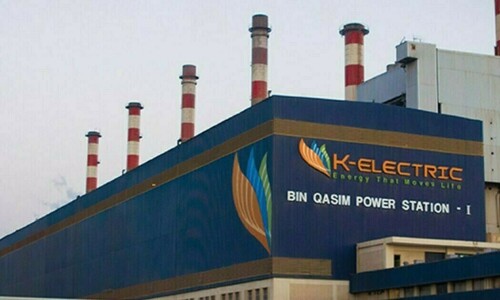 The Reko Diq copper project in district Chagai, Baloch-istan is expected to commence production in next four years. Feasibility study of the project will be completed by next May.
The Reko Diq copper project in district Chagai, Baloch-istan is expected to commence production in next four years. Feasibility study of the project will be completed by next May.
The project is jointly sponsored by Chile’s Antofagasta with stakes of 37.5 per cent, Canadian miner Barrick Gold Corp with 37.5 per cent, and the government of Balochistan with 25 per cent. It involves an initial investment of $1.5 billion.
There are an estimated two billion tons of copper deposits in the district. An output of some 150,000 tons of copper per year is targeted. The capacity may eventually be raised up to 220,000 tons per day, with an investment of some $5 billion”, according to the Chilean company President Marcelo Awad. Many doubt the smooth execution of the project. Since the year 2000, the project has witnessed change of sponsorship among various stakeholder foreign firms.
The first contract was signed with the BHP Minerals International Exploration Inc in July 1993 with the company’s stake at 75 per cent. The BHP had failed to make any significant progress in exploring the copper resources and the Tethyan Copper Co Ltd. (TCC) of Australia secured the right to all BHP interests.
The stand of the ministry of petroleum and natural resources on the issue of transfer of stakes of Reko Diq project has been that, the BHP Billiton as a matter of their international policy could transfer their smaller interests to other junior mining companies with a usual provision for a claw back right in case of a major find.
As per their joint venture agreement BHPM had first offered their 75 per cent share to the provincial government, which had no resources to take over the stakes. Balochistan agreed to waive off their right of first refusal and allowed BHP Billiton to look for any other company capable to invest in exploration.
The Australian TCC, which planned to start the Reko-Diq project in 2003 with an investment of $130 million, had a joint venture with government of Balochistan. A few years back, the Chilean firm agreed to a $133 million joint venture with the Australian TCC to explore and exploit copper and gold.
The agreement involved the purchase of a 19.95 per cent stake in Australia’s TCC for $20.5 million as well as an investment of $37.5 million for a 50 per cent equity stake in company’s Pakistan mineral project. The agreement also involved a commitment to invest up to $75 million in exploration and development.
Chinese, British, Australians, Chileans and Canadians have so far acquired stakes in strategic copper and gold assets of Chagai on rising prices in the international market.
Chagai district is emerging as a hub for the mining industry in the province. Saindak and Reko Diq are the two mega copper mining projects currently under way. The Dasht-i-Gauran tenement in Chagai is located between Saindak and Reko Diq where significant porphyry copper-gold deposits have been discovered. The tenement covers a number of interpreted alteration zones identified from satellite images. One rock sample from reconnaissance geochemical sampling contained 1.06 g/t gold and 3.5 per cent copper.
The demand of copper will increase in future. The officials expect that annual production of 250,000 tons of copper from Reko Diq project would not only bring Pakistan on the world copper map but also help strengthen its economy.
While talking to a delegation of Antofagasta of Chile and Barrick Gold of Canada in June, Prime Minister Syed Yousuf Raza Gilani advised the team to ensure maximum number of jobs to the people of Balochistan; that arrangements be made to impart skills training to the locals so that they can avail job opportunities. The foreign firms reportedly sought adequate security cover and necessary infrastructure facilities in Chagai district to complete their projects.
Local experts believe that the production of copper is a lengthy and dangerous process. Smelting of copper ore at factories emits arsenic and carbon monoxide, which pollutes air and water near mines. Copper is heated at high temperatures for several times before metal is ready for export. For having no surface flow, the Chagai is faced with acute shortage of water. Like the Saindak project, the expected mining operations in Reko Diq will depend on sub-surface water. Exploration of underground water potential of the region is a pre-requisite for any mining project.















































Dear visitor, the comments section is undergoing an overhaul and will return soon.